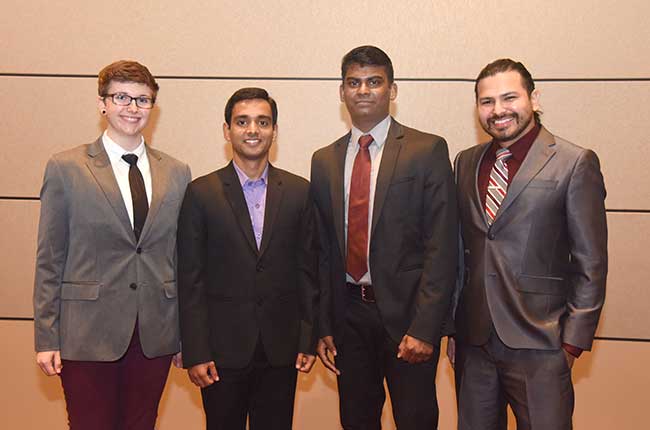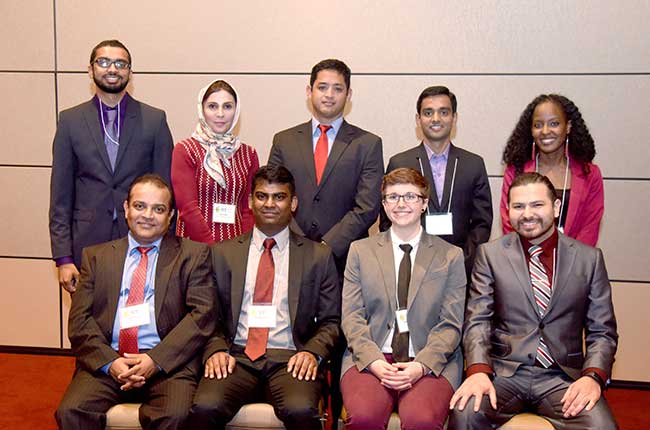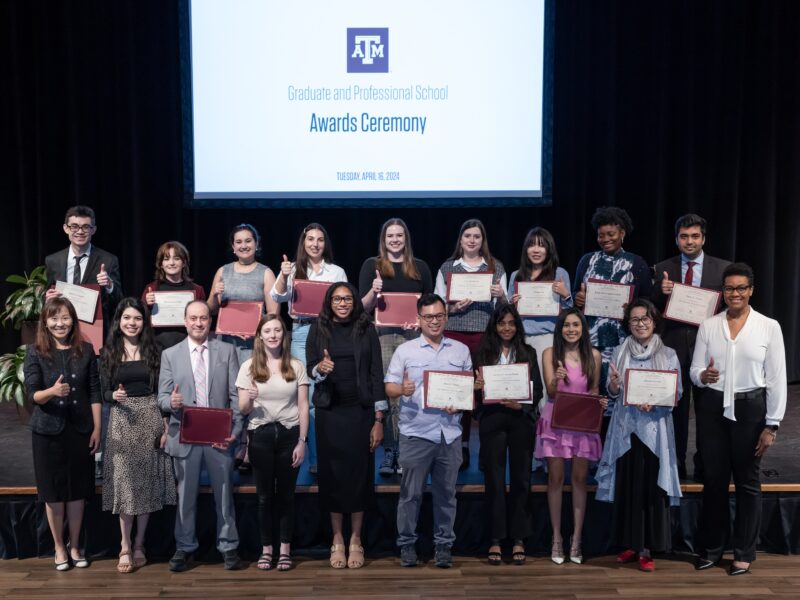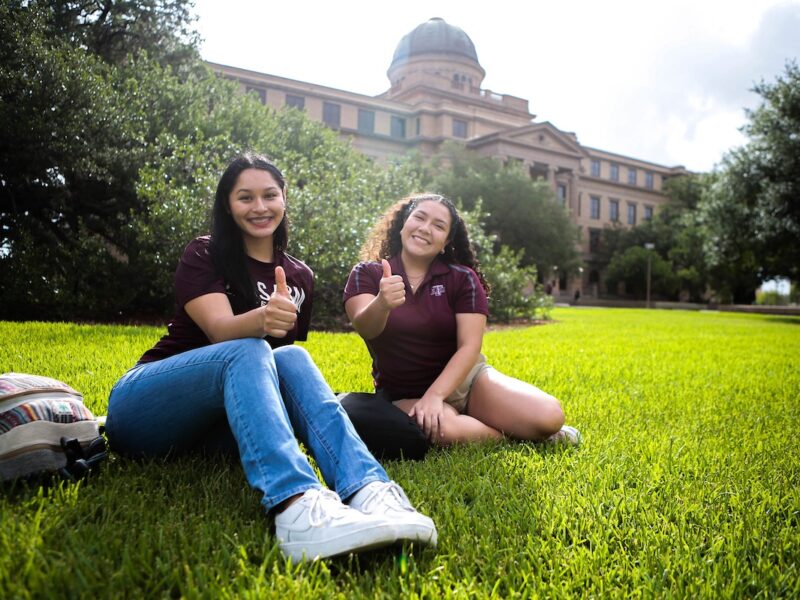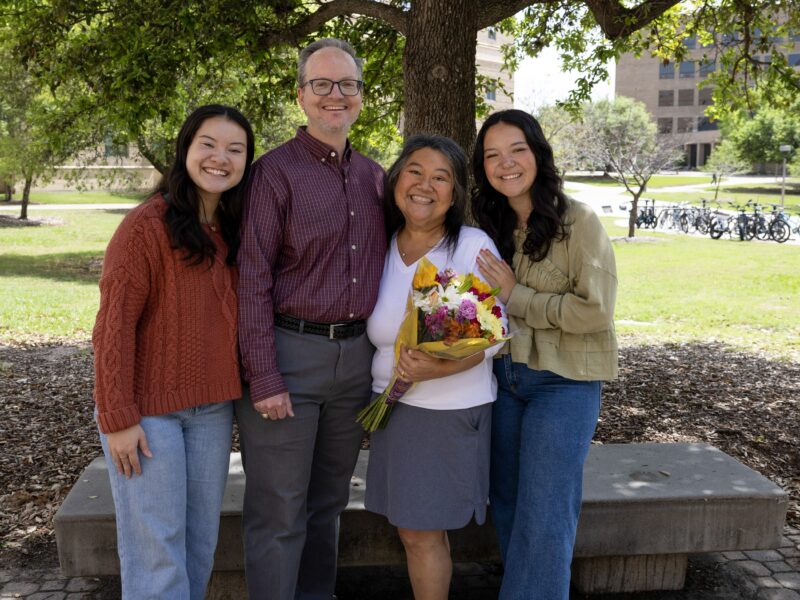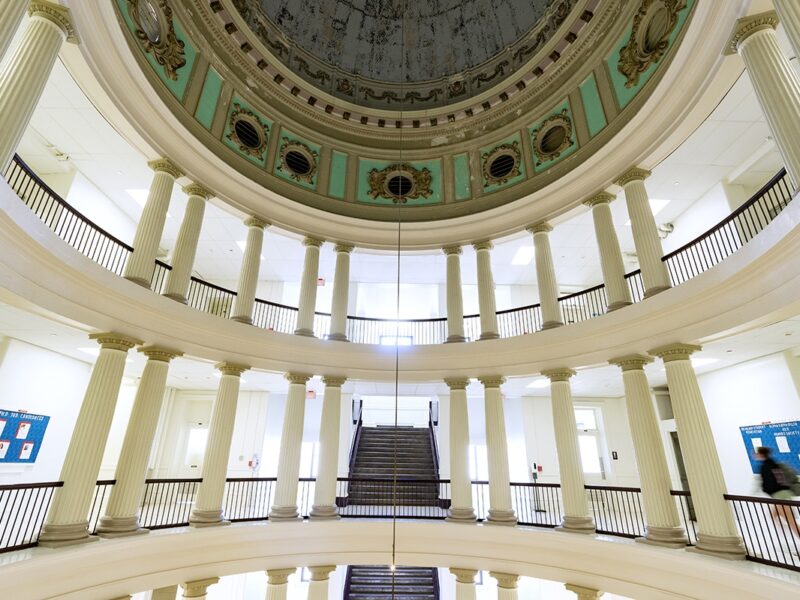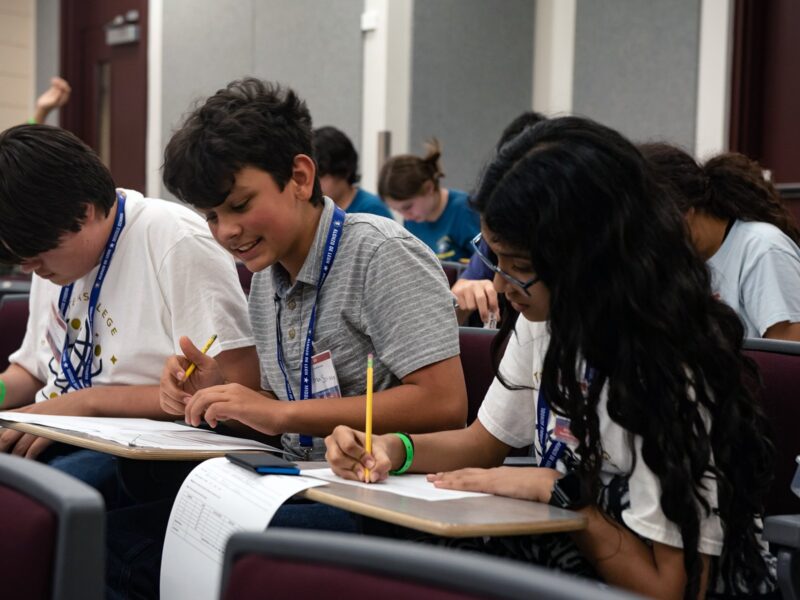The ability of scientists and researchers to explain their technical research concisely and clearly is an acquired skill that can positively affect the promotion of their work and the trajectory of their careers.
Since 2013, G.R.A.D. Aggies, a professional development program of the Office of Graduate and Professional Studies, has been doing its part to help graduate students at Texas A&M University gain these critical communication skills through the international Three Minute Thesis (3MT) communication competition.
“3MT basically provides a format for scientists or researchers to create an ‘elevator speech,’” said Joelle Muenich, professional development coordinator for the Office of Graduate and Professional Studies at Texas A&M. “The easier it is for students to talk about their research in a way that the general public can follow and understand, the more marketable they become, and the easier it is for them to land that job out of graduate school or score that funding they are applying for to continue their research.”
This year, Vijay Rajanna, a computer science and engineering doctoral student, won the competition, which means he will advance to the regional contest at the Conference of Southern Graduate Schools in Fayetteville, Arkansas, in February.
He delivered a presentation about the human-computer interaction research he is conducting with Computer Science and Engineering Professor Tracy Hammond in the Sketch Recognition Laboratory. Their work enables those with either permanent or situational disabilities to operate computers using the movement of their eyes.
“Vijay did a great job in communicating his research in a manner that could be understood by a non-specialist audience with varying degrees of expertise,” said Karen Butler-Purry, interim vice president for research at Texas A&M, who was one of the judges.
In preparation for the competition each year, the graduate and professional studies office hosts three development sessions for the participants followed by a special session for the finalists. These sessions provide tips for structuring, timing and delivering the talks and designing the slides. During the preliminary rounds, the students learn through performing the exercises and observing their peers’ presentations, Butler-Purry said.
“I learned from my earlier mistakes and spent much time on writing and revising the drafts of my speech,” said Rajanna who first participated in the 3MT competition in 2016. “I also presented a few practice talks in front of my lab members who provided valuable feedback that helped significantly in shaping my talk.”
The students learn to construct narratives that convey the motivation for their research and connect with the experiences of the audience, and they deliver their presentations without fillers, long pauses or repetitive language using hand gestures that demonstrate confidence, said Rajanna.
The competition is divided into doctoral and master’s categories. Six other doctoral and two master’s students also delivered three-minute presentations in front of an audience that included the panel of six judges. In each category, first-place awards include a $1,000 prize, and runner-up and People’s Choice awards each include a $500 prize.
Rajanna also won the People’s Choice Award, and he plans to use his combined $1,500 prize to purchase a virtual reality headset with eye tracking capabilities. Robert Fuentes, a doctoral student studying toxicology, won runner-up for his talk on cellular mechanisms of dietary cancer prevention.
In the master’s category, Emily Whitaker, a graduate student of oceanography, won both first place and the People’s Choice Award for her talk on bacterial enzyme activity in marine oil snow. Siva Ramadoss, a graduate student of construction science, won runner-up for his talk on a virtual reality-based experiential model for lost historic buildings.
“Many graduate students have difficulty communicating the technical aspects of their research to an everyday audience, and this competition teaches them to do just that,” Muenich said. “It’s an important skill every graduate student can use whether they’re in the job market and interviewing, or talking with research sponsors in the workplace.”
Muenich was instrumental in bringing the competition to campus at a time when it was relatively new to the United States. She talked to officials at the University of Queensland in Australia, where it originated in 2008, and she reached out to the few other American universities holding the official 3MT competition for guidance. She has remained intricately involved in the planning processes for the annual competitions.
“The overall process provides an opportunity for our students to develop their skills in formulating and presenting their research to a lay audience,” Butler-Purry said. “Further, the competition provides an opportunity for the university to showcase some of the incredible research that is being conducted by its graduate students and the ways in which it addresses societal problems.”
###
Media contact: Joelle Muenich, Graduate and Professional Studies, at 979-845-3631, or joelle.muenich@tamu.edu; or Elena Watts, marketing and communications specialist, at 979-458-8412 or elenaw@tamu.edu
